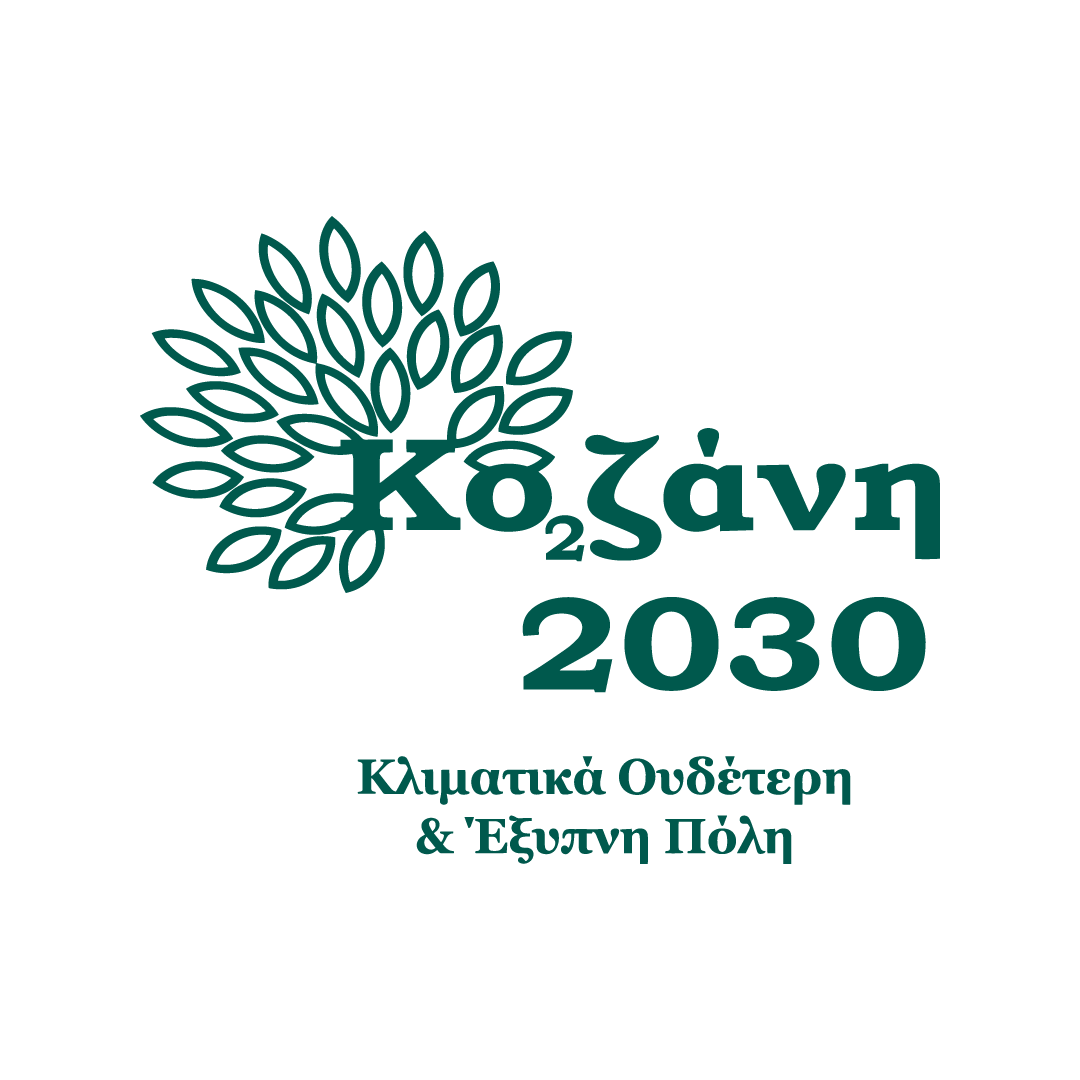The JUST STREETS consortium combines the expertise of 32 partners, including applied research and knowledge transfer experts, technology and service providers, network organisations, and forward-thinking public authorities.
Research & Academic Partners
-

LINKS is an internationally active research organization in the field of transformation with applied research, innovation, and technology transfer activities. With a team of more than 160 experts and socio-economic transformations in the fields of Environment, Sustainable Cities, Transportation and Mobility being core topics of their work, LINKS is well positioned to coordinate the JUST STREETS project.
-

CIRCE is a Spanish non-profit research foundation with focus on solutions for sustainable development and renewable energy. Within this field, its 280+ researchers are specialized on improving the competitiveness of companies by generating and transferring technology through market-oriented R&D. A particular strength is developing tailor-made trainings and programmes to transfer expertise.
-

The IT University of Copenhagen was founded in 1999 as a specialized university for the digital transformation. With its strong expertise in modelling and simulation as well as the background from one of Europe’s cycling capitals, the specialists will support JUST STREETS by modelling mobility choices and developing a Superbockify approach for participating cities.
-

The Politecnico di Torino (POLITO) has been Italy’s first engineering school and educates nearly 40.000 students today. The team from its Environmental Engineering department have a particular focus on behaviour change and will support JUST STREETS by developing scenario simulations, road safety assessments, and mobility behaviour analyses.
-

The Technical University of Cluj-Napoca is an advanced research institution in Romania’s second largest city and home to more than 20,000 students within its 12 faculties. With more than 400 inter-university collaboration agreements the university has a very strong international focus. The team at its Faculty of Automotive will be contributing research on multimodal urban-rural connections and how to support the mobility transformation.
-

The Israel Institute of Technology is one of the world’s top 10 Science and Technology research universities, hosting more than 50 highly specialised research units today. Experts from the Centre for Urban and Regional Studies are internationally renowned for studies on walkability and accessibility for marginalized groups.
-

The University of Amsterdam is inspiring generations already since 1632. The team from its Department of Urban Planning are experts on the future of urban mobility and have vast expertise in the design of co-creation processes for mobility transformations, especially cycling. They will also be supporting JUST STREETS by creating dedicated online tools for knowledge transfer.
-

The University of Porto is the largest learning institution in Northern Portugal, hosting more than 35,000 students in 14 faculties. The team of its Centre for Territory, Transport and the Environment is particularly active in the field of urban transformation. The experts will support JUST STREETS with specific research on using digital tools for the inclusion of marginalised citizen groups into the sustainable mobility transition.
-

London-based University of Westminster with its 12 schools in 3 colleges is home to 20,000 students from 169 countries. While the university puts Sustainability as well as Equality, Diversity, and Inclusion at the heart of everything they do, it is the team at the School of Architecture and Cities that brings substantial experience in the transformation towards sustainable mobility into the JUST STREETS team.
-

The Western Norway University of Applied Sciences combines five campuses along the Norwegian coast. Its department of Civil Engineering and Environmental Sciences hosts an impressive number of experts in social sciences and has a particular focus on ethnographic and qualitative methods applied to transport justice.
Expert Partners
-

Agencia TPL is the public transport agency of the Metropolitan Region of Milano, Italy. With more than 4,700 public transport stops it is serving Italy’s largest urban agglomeration and around 3,3 million citizens. Together with the City of Milan, Agencia TPL will be focusing within JUST STREETS on the co-creation processes connected to establishing mobility hubs.
-

Centro Studi Pim is a voluntary association of local authorities providing operational and technical-scientific support in the field of territorial government to the Metropolitan Region of Milan. The team is highly experienced in all aspects of regional governance and will support the JUST STREETS pilot in Milan especially with its expertise in the fields of planning, project implementation and related socio-economic effects.
-

With 2,000 member municipalities in more than 25 countries, Climate Alliance is the largest European city network dedicated to climate action and works at the intersection of local climate advocacy and the European Commission’s initiatives and programmes in this field. Its team is very experienced in facilitating knowledge transfer and upscaling successful projects – both of which will be at the core of their work in JUST STREETS.
-

The European Cycling Foundation is the European umbrella organisation for more than 65 member organisations in over 40 countries focusing on cycling for transportation and leisure. Its team of experts will be supporting JUST STREETS by tapping into the expertise of this vast network of transportation and cycling experts, providing transformation-related insights, as well as local policy recommendations.
-

The International Federation of Pedestrians is the umbrella organisation for more than 48 national member organisations, supporting local and national decision makers, politicians and planners in advancing walkability. Using its far-reaching network of walking experts and advocates it will facilitate the exchange of expertise and grass-roots capacity building for JUST STREETS.
-

RINA-C is an Italian-based international consulting company established in 1861. With a global network of over 5,600 professionals RINA-C is specialized in testing, inspecting, certifying, and engineering solutions across a wide range of markets, including Energy, Mobility, and Infrastructure. One of the team’s core competences is to simplifying complexities.
-

SocialFare, the Centre for Social Innovation, is the first Italian centre entirely dedicated to social innovation. Through research, community engagement and co-design, its experts support those who develop innovative solutions to pressing contemporary social challenges. In JUST STREETS the team will be supervising participatory processes for all street interventions.
-

Southeast European Technological Company is an internationally active consultancy specialized on mobility and transport challenges. It has a strong expertise in developing Strategic Urban Mobility Plans (SUMPs) with cities and municipalities. Within JUST STREETS its experts will support the City of Vratsa in improving active mobility.
-

Tredit Consulting is an internationally active consultancy providing planning and management services in all transport sectors within the fields of Logistics and mobility IT solutions. Based in Kalamaria, Greece, the team supports businesses and public authorities in all of the EU. Within JUST STREETS its experts will support the City of Kozani in implementing its street intervention.
-

The Urban Future team are experts in supporting urban practitioners to drive change. Organising Europe’s largest events for urban sustainability, its formats inspire, motivate, guide and connects a large international community of urban decision-makers, leaders, administrators, and influencers. Urban Future will support JUST STREETS with its deep understanding of practitioners’ challenges.
City Partners
-

With around 63% of its more than 900,000 residents using bicycles on a daily basis, Amsterdam (Netherlands) is clearly one of Europe‘s cycling capitals. To continuously support the mobility shift towards sustainable modes of transportation, Amsterdam is using its more than 600 annual road infrastructure projects as testbeds for mobility experiments – banking on the city’s long tradition of public participation.
-

With a population of close to 200,000 inhabitants, the Northern-Portuguese City of Braga has been developing into one of the country’s economic powerhouses since the 1980’s. Today the Braga metropolitan area is the third most populated urban area in Portugal. But the city’s rapid growth also brought a strong increase in the use of private cars, coupled with health, safety and urban planning challenges.
-

The small Romanian town of Cugir is located in a hilly area surrounded by mountains. It is facing severe road safety challenges due to the strong and increasing use of private cars, which is deeply rooted in the citizens’ mentality as a status symbol. Perfectly laid out for benefiting from the 15-Minute-City concept, Cugir has started the process of transforming its mobility infrastructure.
-

The Northern Israeli port city of Haifa is one of the country’s economic centres. Home of the University of Haifa and the Israel Institute of Technology it has become a high-tech epicentre for the entire region, hosting tech giants including Apple, Amazon, IBM, Microsoft, Google, Yahoo!, and Intel. Within the JUST STREETS project, the City of Haifa will be testing concepts for street walkability of marginalized groups.
-

Kozani is the administrative and commercial centre of the Greek region of Western Macedonia. Located in a mountainous region with cold winters, the city has been registering a strong surge in peak-hour traffic congestion from cars, increasingly affecting the safety and health of pedestrians and users of active mobility. In 2020 Kozani has started to implement a SUMP to prioritise citizens over cars.
-

The North Italian Metropolitan City of Milan is Italy’s economic centre and home to around 3,3 million inhabitants in 133 municipalities. With a strong focus on sustainable urban transformation, the city is undertaking numerous measures to increase the share of active mobility. This also requires approaching its public transport system systemically, especially when tasked with influencing public mobility behaviour.
-

The City of Riga is the capital of Latvia. With around 630,000 inhabitants it is the largest city in the entire Baltics region and one of its economic centres. The city is noted for its Art Nouveau/Jugendstil architecture and the historical centre is a UNESCO World Heritage. Riga is challenged by a very large number of daily commuters using private cars but has already started to address its comparably low model share of active mobility.
-

The London Borough of Southwark is situated at the south bank of the River Thames and forms the oldest part of South London. Home to more than 310,000 inhabitants, Southwark will be testing within the JUST STREETS project innovative solutions to strengthen active modes of transport.
-

The Lithuanian capital of Vilnius is home to a rapidly growing population of around 540,000 inhabitants. Faced with challenges of urban sprawl and widespread use of private cars, the city has started to implement an ambitious strategy to convert the city centre’s streets into multifunctional areas with slow speeds, featuring connected and safe cycling and green infrastructure.
-

Vratsa is a medium-sized Bulgarian city at the foot of a mountainous region and home to around 60,000 inhabitants. It is challenged by a combination of high numbers of road accidents due to congestion from private car traffic and the lack of an active mobility culture. To tackle road safety, the city has started to plan street-level infrastructure interventions to increase safety especially for cyclists and users of e-scooters.
-

The City of Westminster is at the heart of London and includes several well-known city districts such as the West End, Covent Garden, and Soho. Even though they are part of London’s Congestion Charge Zone, the streets in these areas are heavily congested by motorized traffic and many different users, effectively crowding-out more vulnerable user groups. The city is committed to continue its efforts to improve street space for such vulnerable users.
-

With more than 670,000 inhabitants, the Spanish City of Zaragoza is among the 30 most populous cities within the European Union. While the city has a strong economic backbone from the industry, manufacturing and automotive sectors, its public transport system is poorly developed. Inhabitants are faced with long waiting times, frequent late departures, and missing coverage in parts of the city. By improving the availability of mobility data, the city wants to improve intermodality while reducing road accidents and air pollution.
